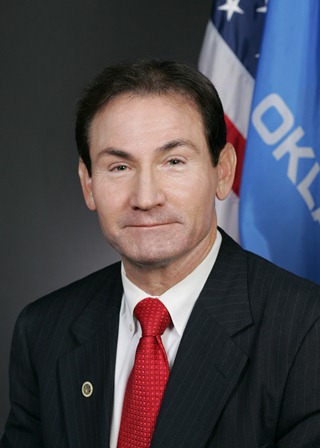Sharp refiles legislation to address classroom misconduct
 Sen. Ron Sharp
Sen. Ron Sharp
Sen. Ron Sharp has refiled legislation to address the growing problem of student misconduct in classrooms. Senate Bill 911 will provide an alternative to suspension by giving school districts the option of creating a system to issue fines if necessary to parents whose children violate the district’s behavioral policy.
“Unfortunately, educators’ only way to address bad behavior is by expelling or suspending students, which is obviously not working as the number of those types of punishments is increasing,” said Sharp, R-Shawnee. “This bill will give administrators the option of fining either the student or the parents of those students who break the rules repeatedly. We have to get both the child’s and parents’ attention. Teachers are not babysitters, they are only paid to educate. It’s the parents’ job to teach respect and the importance of following rules. If they haven’t taught their children these basic principles this new voluntary system will hopefully help encourage them to do so.”
Under the bill, each school district would have to adopt a procedure to allow for superintendents, principals and vice principals to assess fines (up to $50 per incident). The district would have to specify the circumstances under which a student could be assessed a fine and let parents or guardians know annually about the new discipline procedure.
“Suspensions benefit no one. They are a vacation for the student, a nightmare for the parent and cause more work for teachers when the student falls behind in class,” said Sharp. “They’re only used because school districts have no other options to control out of control students while providing for the safety of other students and maintaining a positive learning atmosphere. This bill will give them another option.”
Exceptions would be provided for students under the age of eight or those on individualized education programs (IEP) based on the Individuals with Disabilities Education Act (IDEA). Consideration would also have to be made for extenuating factors, such as intent or lack of intent at the time the student engaged in the conduct, the student’s disciplinary history or other factors determined by the district board of education.
Districts would also need to create an appeals process and decide who would be on the appeals committee.
Alternative methods for students and/or parents or guardians to pay any assessed fines would also need to instituted, including but not limited to, requiring the student and the parent or guardian to attend counseling.
Revenue collected through fines would be allocated by the district board of education to provide campus security or academic scholarships.
 Oklahoma Senate
Oklahoma Senate

